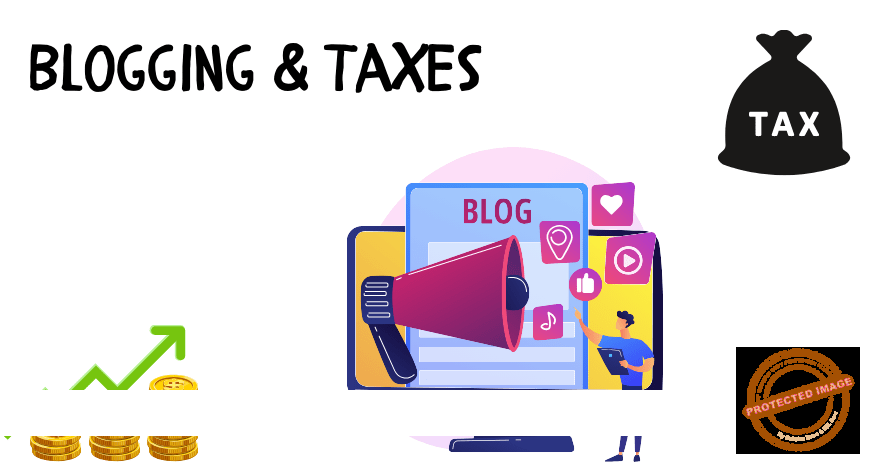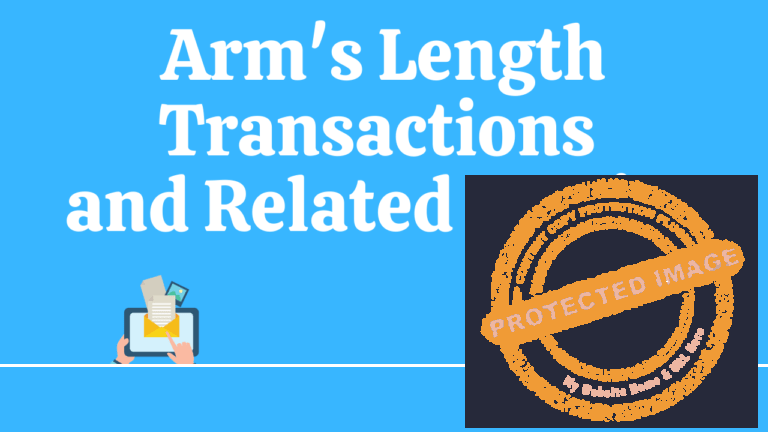In this post, we will examine blogging business and VAT in Kenya. This is a continuation of the previous posts we did in the last two months.
Affiliate Disclosure: This post may contain affiliate links – I may receive a small commission if you purchase through links, at no extra cost to you. Read HERE.
Withholding VAT
Some individuals in Kenya assumed the role of withholding VAT agents. This means that any time a VAT registered blogger raises an invoice with the VAT component, the withholding VAT agents will withhold 6% of the VAT amount from the blogger’s pay and remit it to the Kenya Revenue Authority (KRA) on behalf of the blogger.
KRA will inform the blogger about the remittance of the money. The money remitted is a payment in advance for the blogger for that month’s VAT. Hence, when making a VAT payment for that month, the blogger will pay less than the amount already remitted. It is an offence to withhold the 6% unless a person is an appointed VAT agent.
Input Tax
Bloggers make various purchases for their business. In the normal business of a blogger, they will pay VAT on the various purchases. Registered bloggers for VAT can recover the VAT on their purchases. Bloggers commonly call this VAT input tax.
This means that from the VAT the blogger has charged in a month, they will deduct the VAT on purchases and remit the difference. It will be a case of deducting the input VAT from the output VAT and remitting the difference.
Imported Services
Sometimes, bloggers receive services from persons who are not based in Kenya. For example, bloggers receive imported services such as hosting services. Bloggers in Kenya are not charged VAT by international service providers because they are not registered for VAT.
However, if the blogger had hosted their blog in Kenya, the local service providers have charged with VAT the bloggers. To make it fair competition for all service providers, all service providers are required to pay VAT in Kenya.
But how do non-Kenyan service provider pay VAT in Kenya and they do not have a personal identification number (PIN)? The tax law provides that the person who receives the services is the one responsible for paying the VAT to the KRA.
Therefore, KRA expects the blogger to pay 16% of the amount they pay to the service provider based out of the country. In the next VAT period, the blogger will use the amount paid to the KRA on behalf of the service provider as an input tax.
Note that it is only the VAT registered bloggers who should pay this VAT. Failure to pay the VAT to KRA means that the blogger cannot deduct it as an input tax.
Records to be Maintained
After bloggers register for VAT, they are expected to maintain several records. The blogger must maintain the records for 5 years, as required by law, with a few exceptions. Bloggers registered for VAT should maintain the following records:
1.Copies of tax invoices and simplified tax invoices (cash sales receipts) serially numbered;
2. Copies of debit and credit notes which should be serially numbered;
3. Purchase invoices, receipts;
4. Order documents (LPO, contracts, tenders, etc.)
5. Bank statements, pay in slips, cheque counter foils;
6. ETR details.
7. Details of bloggers’ credit and debit cards.
8. Any customs document in cases of imports.
In addition, for imported services
1. Evidence identifying the supplier and recipient
2. Nature and quantity of services supplied;
3. Time of supply;
4. Place of supply;
5. Consideration of the supply
6. Extent to which the recipient has used the supply for a particular purpose.
Please note these are just a few of the records that are supposed to be maintained.
VAT Analysis
After every end of the calendar month, the registered blogger has the responsibility to determine the VAT payable. By analyzing the taxes, the registered blogger is expected to determine the VAT payable. In the tax analysis, which is also referred to as a monthly VAT summary, the blogger will determine the following :
- Output tax, which will include all the VAT the blogger has charged during that month, any VAT on imported services and any VAT on debit notes.
- Input tax, which will include all the input tax charged, any VAT on imported services from previous periods
- Any VAT from credit carried forward.
The taxpayer will deduct the net input tax from the net output tax. The taxpayer will then deduct any VAT deducted at sources as withholding tax.
VAT 3 Month Balance
The blogger may have any of the following balance for the VAT month:
Debit balance
The output tax less input tax plus any input tax credits carried forward is a positive balance, in which case there will be tax to pay. A debit balance can also be because of the taxpayer having sales but no purchases.
Credits balance
The output tax less input tax plus input tax credit carried forward from the previous month will be a negative balance. There will be no tax to pay, but the balance will be carried forward to be used in subsequent months. A credit balance can also be because of the taxpayer not having sales but has purchases.
Zero balance
The output tax is equal to input tax plus any VAT credits carried forward from previous months.
Nil balance
The taxpayer did not transact any business. There were no sales and there were no purchases in that month.
Submitting the Tax Returns
The tax authorities expect the taxpayer to submit the monthly VAT returns by the 20th day of the following month. The tax return is the basis of tax self-assessment. The taxpayer submits the tax returns and tax payments by the due date.
How to File a Tax Return
Taxpayers currently submit the tax returns through the i-tax platform. The blogger will simply log into i-tax using their PIN and follow all the steps and file the tax monthly tax return. Once the tax return is filed, the blogger will know the VAT due.
Tax Payment
Once the blogger has established the amount of VAT due, then they generate a pay-in slip for the tax due.
The blogger will choose the mode of tax payments and the particular bank that they will use to make the payment. The blogger should maintain copies of the payments.
How can Bloggers Improve VAT Compliance?
The following are some steps that bloggers can take to improve tax compliance in Kenya.
- Improve tax literacy – attend seminars, read blogs on tax, visit the KRA website occasionally, read newspaper articles, tax books, go back to school, etc.
- Get PIN.
- Register for VAT obligation.
- Comply with the VAT requirements – pay tax, remit tax returns, maintain tax records, etc.
The two posts that we have written on bloggers and VAT are just an introduction to the subject. The aim of the articles was not to make bloggers tax experts (but they are welcome) but to make them appreciate the responsibility they have so that they do not fall on the wrong side of the tax law in Kenya.
Thank you for reading this post. Let us know your thoughts in the comments section.
Dr Wakaguyu
Email: taxkenya@gmail.com




